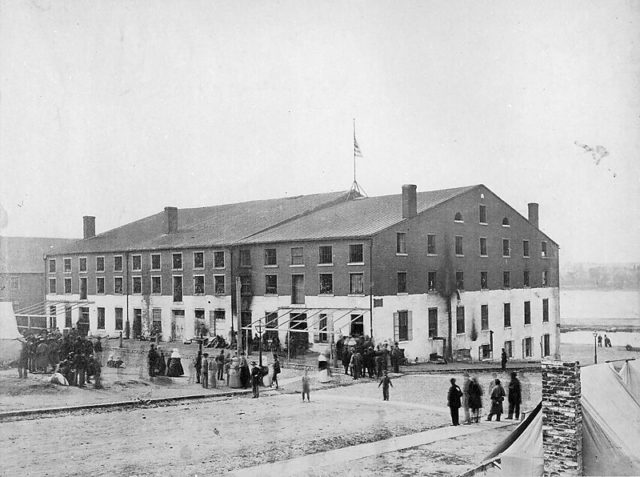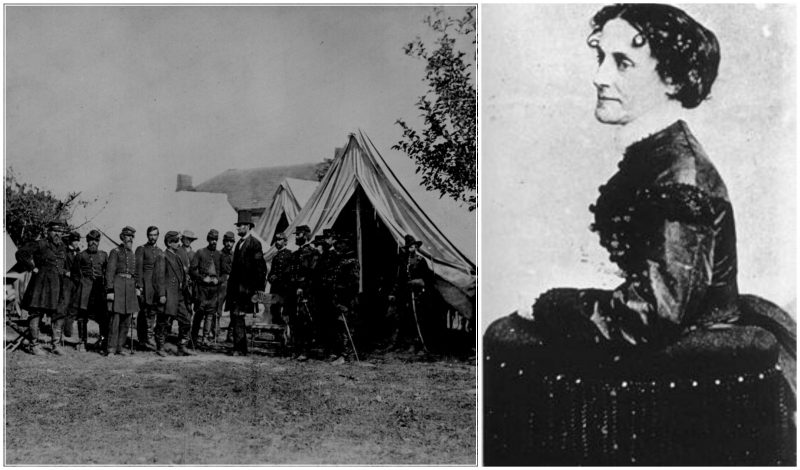The American Civil War was a peculiar affair as it was something that American society had not experienced before. and hasn’t seen since. While on the one hand the war helped Lincoln abolish slavery, it kept the union together with a bonding force known as the ‘reformation’.
Although the Reformation was a good enough deal for the businessmen and other elitists, people living on the lower end of the ladder still had to face the same sort of bigotry and rivalry that was once the characteristic of the Civil War.

In the recent presidential election in America, previously invisible lines have emerged with the rhetoric undertone from civil war hostilities. As common Americans struggled to come to terms with the chaos ensued by both sides during the American Civil War, women from both sides were employed by the agencies to serve as undercover agents and collect information from the enemy.
Throughout the war, both sides began recruiting a large number of women operatives who provided crucial information regarding military strategy that often helped win battles and turn the tide of the war.
One of the many names that stood out as the most renowned Union spy was Elizabeth Van Lew.
Elizabeth was born in Richmond, Virginia on October, 25 1818 to Eliza Baker and John Van Lew; her maternal grandfather was the former mayor of Philadelphia who served from 1796 to 1798.
Elizabeth’s father John Van Lew was a hardworking man and had moved to Richmond when he was only 16. With his dedication and hard work John had built a prosperous hardware business within two decades; he also owned several slaves for his factories.

Elizabeth was sent to a Quaker school in Philadelphia by her family; the school gave her education and also reinforced her abolitionist sentiments. Slowly but surely Elizabeth grew wary of the institution of slavery and had developed hatred towards the practice.
After the death of her father in 1843, Elizabeth’s brother Newton Van Lew took over the business of his father and immediately freed a number of slaves his father previously owned.
Many of the freed slaves, however, continued working for the family as paid servants and respected the new owner. As the depression of 1837-44 drew on America, Elizabeth decided to use all of her inheritance money to buy and free the relatives of the slaves her brother had freed earlier.
For many years after that, Elizabeth and her brother went on a crusade to free as many slaves as they could.
Newton Van Lew was a regular visitor to the slave markets, where if he saw a family being split, he would buy the entire group and bring them home only to free them with papers of manumission.
When the Civil War broke out for the cause that she proposed all through her life, Elizabeth decided to play an active yet covert role in favour of the Union.
Upon the opening of Libby Prison in Richmond, Elizabeth quickly secured a job at the prison to bring food and other stuff for the prisoners, she very skilfully passed information to the soldiers about the outside developments.

Elizabeth aided a number of prison escapes and passed information to the escapees regarding safe houses and potentially hazardous places.
Another important task that Elizabeth undertook during her time at the Libby prison was to gather information about the confederate troop levels and movements from recently captured prisoners, which she then passed on to the Union commanders.
On multiple occasion, Elizabeth used her large mansion as a hideout for escaped Union prisoners and other confederate deserters.
Later in her career, Elizabeth formed a spy ring that operated in and around Richmond, Virginia.
Perhaps her most appreciable achievement during the war was her infiltration of the confederacy White House, wherein Elizabeth supposedly convinced Varina Davis to hire Bowser as a household servant; Bowser was one of the slaves freed by Elizabeth from her father’s factories and was Elizabeth’s trusted acquaintance.
Bowser assumed a number of identities while working for Elizabeth Van Lew, which made documenting her achievement as one of the most effective members of Elizabeth’s espionage ring, a rather difficult task.
Overtime, Elizabeth’s spy ring became so effective that she often sent fresh flowers to Lt. Gen. Ulysses S. Grant from her garden along with a copy of Richmond’s newspaper.
Elizabeth had devised a very sophisticated cipher system and successfully smuggled important messages out of Richmond hidden inside hollowed out eggs.
Elizabeth Van Lew had gained great respect among all Union Commanders.
A great story from us from the Civil Era: James “Scotty” Philip is the man who saved the buffalo
In his memoirs George H. Sharpe, an intelligence office for the Army of Potomac. credited Elizabeth Van Lew’s contributions in a very appropriate manner, stating that Elizabeth ‘was during the Civil War the greater portion of Union’s intelligence services’.
